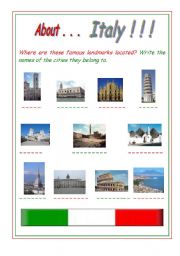
|
About Italy
This is a nice exercise that helps students learn about and then memorize some important landmarks belonging to a foreign country.
Level: elementary
Age: 8-17
Type: worksheet
Downloads: 9
|
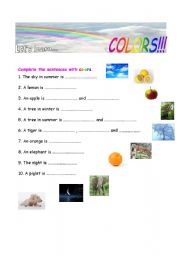
|
Colors
One more funny way to learn colors.
Level: elementary
Age: 3-17
Type: worksheet
Downloads: 2
|
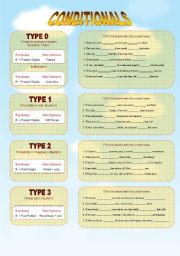
|
Conditionals: Rules and exercises
Concise explanations of Conditional Types and related exercises.
Level: intermediate
Age: 13-17
Type: worksheet
Downloads: 115
|
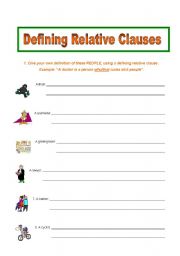
|
Defining Relative Clauses: Who or Which?
Very useful exercises to help students practise the use of defining relative clauses and learn the differences between "who" and "which", often confused especially when speaking.
Level: intermediate
Age: 14-17
Type: worksheet
Downloads: 3
|
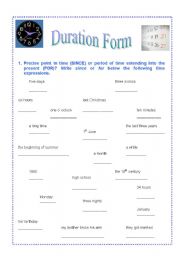
|
Duration Form: For or Since?
Two more useful exercises to learn or refresh Duration Form with For and Since.
Level: intermediate
Age: 14-17
Type: worksheet
Downloads: 3
|
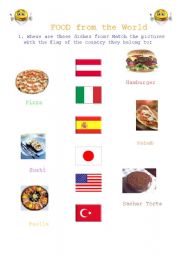
|
Food from the World
The best thing to have students memorize the flag of a country is through food!
After making this worksheet I was actually hungry...
Level: elementary
Age: 8-17
Type: worksheet
Downloads: 3
|
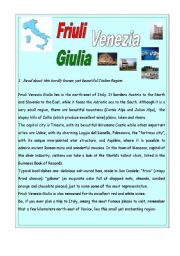
|
Friuli Venezia Giulia
Have your students discover a beautiful Italian region which not many people around the world have the luck to get to know. They will find some interesting information and things they could not imagine could exist there...
Level: elementary
Age: 11-17
Type: worksheet
Downloads: 1
|
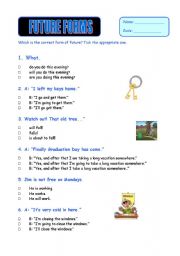
|
Future Forms - Revision Test
The use of the different Future Tenses can be tricky. This exercise can be a further tool to help students apply the right form to the situation it refers to. With answer key.
Level: intermediate
Age: 14-17
Type: worksheet
Downloads: 8
|
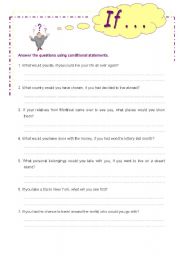
|
Hypothetical questions. Conditionals.
These hypothetical questions can either be used in the classroom and have the students discuss their different answers and opinions, or as a test to check their knowledge on Conditional types.
Level: intermediate
Age: 14-17
Type: worksheet
Downloads: 6
|
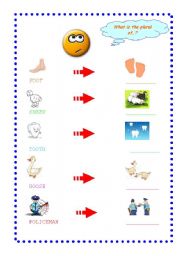
|
Irregular plurals
One more tool to have young learners memorize those nouns which differ from the majority due to their unusual endings.
Level: elementary
Age: 6-17
Type: worksheet
Downloads: 9
|